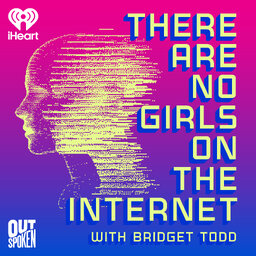What Vanessa Guillén Can Tell Us About Disinformation
After Vanessa Guillén's tragic death, her story was used to fuel disinformation and hate online
Learn more about your ad-choices at https://www.iheartpodcastnetwork.com
In 1 playlist(s)
There Are No Girls on the Internet
Marginalized voices have always been at the forefront of the internet, yet our stories often go over…Social links
Follow podcast
Recent clips

Amazon Ring Super Bowl Ad BACKFIRES; YouTubers Exploit Women's Arrest Videos; Salesforce CEO ICE "Joke" – NEWS ROUNDUP!
1:10:54

University of Oklahoma Trans Instructor's Attorney Still in the Fight After Appeal Denied
47:18

Should You Trust Andrew Huberman? What CBS's Epstein Disaster Reveals About Wellness Gurus
1:32:51
 There Are No Girls on the Internet
There Are No Girls on the Internet